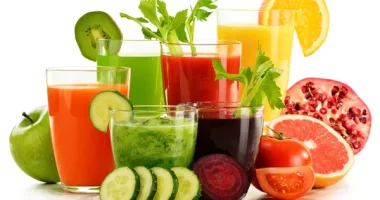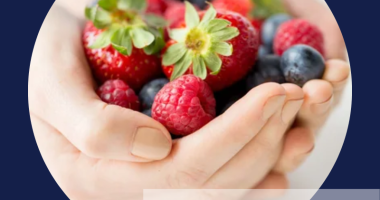What are the Sjogren’s syndrome foods to avoid? Sjögren’s syndrome is an autoimmune disease that attacks the exocrine glands, resulting in dryness in the eyes, mouth and other areas of the body. The main symptoms of Sjögren’s syndrome are:
- Dry eyes
- Dry mouth
- Fatigue
- Joint pain
- Muscle pain
- Skin rashes or dryness
- Swollen, painful glands in the neck, underarm, or groin area
- Trouble swallowing or digesting food
While there is no cure for Sjogren’s syndrome, there are treatments available that can help to manage the symptoms and improve quality of life. One important aspect of treatment is paying attention to diet and avoiding foods that may trigger or worsen symptoms.
Foods to Avoid with Sjogren’s Syndrome
Many foods can trigger symptoms in people with Sjogren’s syndrome. It is important to avoid these foods to maintain optimal health. Here’s a list…
Sugary and Processed Foods
Sugary and processed foods are two of the main culprits of foods to avoid when it comes to exacerbating symptoms and causing flare-ups.
Sugar is a major trigger for Sjögren’s syndrome patients. Consuming too much sugar can lead to inflammation, dryness, and fatigue. It’s best to avoid sugary drinks like soda and juice, as well as sweets like candy, cookies, and cake. Processed foods also tend to be high in sugar, so it’s best to steer clear of these as well.
In addition to sugary and processed foods, there are a few other things that Sjögren’s syndrome patients should avoid. spicy foods can cause irritation and pain, while alcohol can lead to dehydration and worsen symptoms. Caffeine is also a trigger for many people with Sjögren’s syndrome, so it’s best to limit or avoid caffeine altogether.
Dairy Products
First, dairy can be mucous-forming and sticky, which can make already dry mouth and throat symptoms worse. Second, many people with Sjogren’s are lactose intolerant. And lastly, dairy products can contribute to inflammation.
While you don’t have to cut out all dairy, it’s important to be mindful of how much you’re consuming and to opt for more anti-inflammatory options like goat milk or sheep milk yogurt. If you do eat cow’s milk dairy, make sure it’s organic and grass-fed whenever possible.
Gluten and Wheat
If you have Sjogren’s syndrome, you may want to avoid gluten and wheat. Gluten is a protein found in wheat, rye, and barley. It can cause digestive problems for people with Sjogren’s syndrome. Wheat can also be hard to digest and may trigger inflammation.
Refined Carbohydrates
Refined carbohydrates and Sjogren’s are no good friends. Refined carbs are found in foods like white bread, white rice, and pastries. These foods are high on the glycemic index, meaning they cause your blood sugar to spike quickly. For people with Sjogren’s syndrome, this can lead to increased inflammation and dryness.
If you’re going to consume carbs, opt for complex carbs like those found in whole grains, fruits, and vegetables. These carbs are slower to digest and won’t cause such a quick spike in blood sugar.
Also read | Sicca syndrome causes, diagnosis, risk factors, treatment, and medication
Fried Foods
Fried foods are a big no-no for people with Sjogren’s syndrome. Not only do they contain high levels of unhealthy fats, but they also tend to be very dry and difficult to chew. This can exacerbate the symptoms of Sjogren’s, including mouth dryness and difficulty swallowing. If you’re looking for a healthier alternative to fried foods, try baking or grilling your food instead.
Alcoholic Beverages
When it comes to alcoholic beverages, those with Sjogren’s syndrome should be cautious. While moderate alcohol consumption is generally considered safe, it can worsen symptoms of Sjogren’s syndrome. Alcohol can cause dehydration, which can lead to dryness of the eyes and mouth. It can also increase inflammation throughout the body, exacerbating joint pain and fatigue. For these reasons, it is best to avoid or limit alcoholic beverages if you have Sjogren’s syndrome.
Other common trigger foods include:
- Citrus fruits
- Tomatoes
- Strawberries
- Chocolate
- Coffee
- Tea
- Spicy foods
These are just a few examples, and everyone with Sjogren’s will have different triggers. Pay attention to your body and what makes you feel worse. Avoiding these trigger foods will help you feel your best.
Healthy Food Options for Sjogren’s Patients
When it comes to eating for Sjogren’s syndrome, there are a few things to keep in mind. First and foremost, it is important to focus on eating healthy foods that will help support your overall health and well-being. Secondly, there are certain foods that should be avoided, as they can trigger symptoms or make them worse.
Here are some general guidelines for healthy eating if you have Sjogren’s syndrome:
• Choose fresh, whole foods over processed or packaged items.
• Fill up on plenty of fruits, vegetables, and lean protein.
• Limit sugary snacks and drinks, as well as caffeine.
• Stay hydrated by drinking plenty of water throughout the day.
In addition to following these general guidelines, there are also specific food groups that you should either limit or avoid altogether if you have Sjogren’s syndrome. These include:
• Dairy products: Milk, cheese, and other dairy products can contribute to mucus buildup and congestion. They can also worsen other symptoms such as dry mouth and fatigue. If you do consume dairy, opt for low-fat or non-fat options.
• Acidic fruits: Citrus fruits like oranges and grapefruits can irritate the mouth and throat. They can also make dry mouth worse. If you enjoy these fruits, eat them in moderation and be sure to drink plenty of water afterward.
Recipes for Eating with Sjogren’s
If you have Sjogren’s syndrome, you know that the right diet can make a big difference in how you feel. Here are some recipes that are designed to be easy on your digestive system and help you get the nutrients you need.
Sjogren’s-Friendly Quinoa Salad: This salad is packed with nutrient-rich quinoa, tomatoes, and peppers. The dressing is made with olive oil and lemon juice, which are both easy on your digestive system.
Sjogren’s-Friendly Chicken Soup: This soup is made with chicken broth, carrots, celery, and onion. It’s a simple but nourishing meal that will be easy on your stomach.
Sjogren’s-Friendly Fruit Smoothie: This smoothie is made with yogurt, bananas, and berries. It’s a delicious way to get some vitamins and minerals while being gentle on your stomach.
Sources For Sjogren’s syndrome foods to avoid









